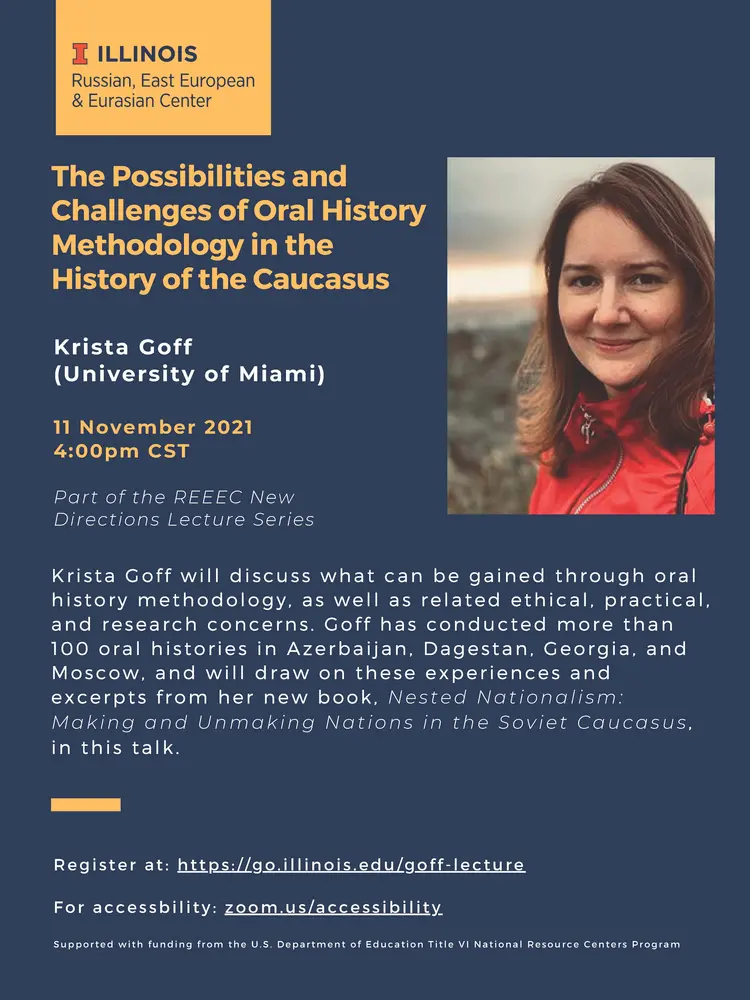
By Justin Balcor (PhD Student, Musicology)
On November 11, 2021, as part of the REEEC New Directions Lecture Series, members of the REEEC community gathered online to hear a talk given by Professor Krista Goff of the University of Miami on oral history methodologies in the Caucasus entitled, “The Possibilities and Challenges of Oral History Methodology in the History of the Caucasus.” The author of Nested Nationalism: Making and Unmaking Nations in the Soviet Caucasus, co-editor of Empire and Belonging in the Eurasian Borderlands, and co-editor of the journal Kritika: Explorations in Russian and Eurasian History, Goff’s work examines a broad range of topics such as nationalism, empire, ethnic conflict, oral history, and the North and South Caucasus.
In the talk, Professor Goff discussed the challenges she faced when conducting more than 100 oral histories in Azerbaijan, Dagestan, Georgia, and Moscow, highlighting the ways in which political and cultural climates affect the ways in which the researcher can interact, or in some cases dissociate, with their interlocutors. In reference to her work on Nested Nationalism, Goff recounted instances where she had to discontinue work with interlocutors due to safety concerns. Placing things in context, due to the history of ethnic separatism and conflict in the Caucasus, by elevating the voices of disenfranchised ethnic groups such as the Talysh, some organizations, governmental or otherwise appear to perceive work such as Goff’s as serving to embed ethnic separatist sentiments within the local population. The response of such organizations is typically severe and thus dissuades many people from participating in such conversations with Goff and other researchers. As Professor Goff discussed in this talk, Talysh people, and other ethnic minorities in the region are not the only people at risk for retribution or punishment. Because of this risk, Professor Goff discussed ideas for safe and ethical practices of oral history research in the region.
Much like her book, Professor Goff provided a clear and broad picture of the experience and history of the Talysh people located in Azerbaijan. At the same time, she provided helpful and thoughtful recommendations for ethical oral history research that considers the safety of both the researcher and interlocutor when dealing with potentially sensitive topics in a possibly restricted environment.
Justin Balcor is a PhD student in Musicology at the University of Illinois at Urbana-Champaign.